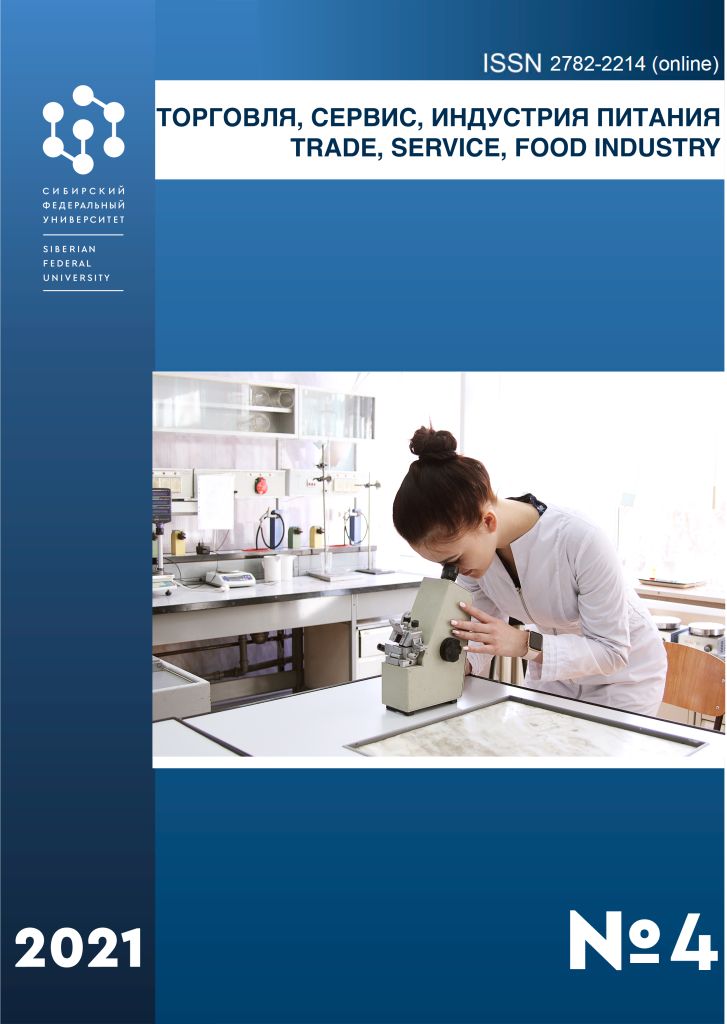Krasnoyarsk, Krasnoyarsk, Russian Federation
UDC 334
This article is devoted to the research of the cluster’s formation of educational services in the conditions of the development of economic relations, which reflect the modern manifestations of the sharing economy. The cluster of educational services is considered the example of a municipal autonomous educational institution in Krasnoyarsk, forming a complex of interacting participants characterized by geographical connectivity. The cluster's activities reflect not only educational processes, for the purpose of improving and accessibility of which it was created, but also economic relations that affect their effectiveness. A range of unresolved problems such as the impact of regulatory regulation, the existence of contractual relations and the need to elaborate a specific concept development is identified when a cluster is formed. Consequently, the study of these processes is crucial and it determines the relevance of the chosen scientific direction.
types of interactions, educational cluster, organizational and managerial relations, the sharing economy, services
1. Ananina, R.F. (2021). The importance of breakthrough innovations in the economy of shared consumption. Regional consumer goods markets: quality, environmental friendliness, business responsibility: collection of materials in the III All-Russian Scientific and Practical Conference with international participation, December 10-11, 2020./ Eed. Yu.Yu. Suslova. Krasnoyarsk: SibFU. 568-572.
2. Ananina, R.F., Kuimov, V.V. (2019). Methodology for evaluating joint purchases of food products. Economics and Entrepreneurship. 3. 997-1001.
3. Ananina, R.F., Kuimov, V.V. (2020). Organization of joint procurement as a form of services in cooperative-network interactions: monograph. Moscow: First Economic Publishing House. 244 p.
4. Ananina, R.F. (2019). The role of services in the structure of cooperative network interactions. Economics and entrepreneurship1 (102). 1219-1224.
5. Ananina, R.F. (2021). In the transfer of services to the economy of shared consumption: features of development during the pandemic. Theory and practice of commercial activity: collection of materials of the XX Scientific and Practical International Conference, May 12-14, 2020 / rel. for the issue.V. Ruban. Krasnoyarsk: SibFU. 204-209.
6. Dorrer, G.A., Ivanilova, T.N., Popov, A.M., Tsybulsky G.M. (2015). On the experience of network interaction in educational activities of universities in Krasnoyarsk. Open Education. 5 (112). 63-68.
7. Unified information system in the field of procurement [Electronic resource] / Procurement Portal. Access mode: http://zakupki.gov.ru/epz/main/public/home .html (accessed 12/24/2021)
8. Information about state (municipal) institutions / [Electronic resource] / Official website for posting information. Access mode: https://bus.gov.ru / (accessed 12/24/2021)
9. Katkalo, V.S. (2004). Inter-firm networks: problems of research of a new organizational strategy. Bulletin of SPbU. -. Ser. 5. 2 (12). 21-38.
10. Regional information automated education management system [Electronic resource]. Regional information system of the Ministry of Education of the Krasnoyarsk Territory. Access mode: https://www.kiasuo.ru / (accessed 12/24/2021)
11. Kuimov, V.V. (2019). Economics of cooperative network interactions. Theory. Practice. Opportunities. Moscow. INFRA-M. 220 p.
12. Petersma, P. (2019). Key management models. 77 models that every manager should know. Translated from the English by V.N. Egorov. 6th ed. Moscow: Laboratory of Knowledge. 400 p.
13. Porter, M. (1993). International competition: Competitive advantages of countries Translated from the English by V. D. Shchetinin. Moscow. International Relations.895 p.
14. Smorodinskaya, N.V. (2015). Globalized economy: from hierarchies to a network structure. Moscow: IE RAS.. 344 p.
15. Sheresheva, M.Yu. (2010). Forms of network interaction of companies: a course of lectures. Moscow: Publishing House of the State University of the Higher School of Economics. 46 p.
16. Botsman, R., Rogers, R. (2010). What’s mine is yours: The rise of collaborative consumption. New York: Harper Collins. 304 p.
17. Constantiou, I., Marton, A., & Tuunainen, V. K. (2017). Four Models of Sharing Economy Platforms. M I S Quarterly Executive. 16(4). 231-251.
18. Hamari, J., Sjöklint, M., Ukkonen, A. (2016). The Sharing Economy: Why People Participate in Collaborative Consumption. Journal of the Association for Information Science and Technology. 67. 2047-2059.
19. Miles, R.F., Snow, C.C. (1986). Network Organizations: New Concepts for New Forms. California Management Review. 28( 3).
20. Zervas, G., Proserpio, D., Byers, W. (2017). The Rise of the Sharing Economy: Estimating the Impact of Airbnb on the Hotel Industry. Journal of Marketing Research. 5. 687-705.








